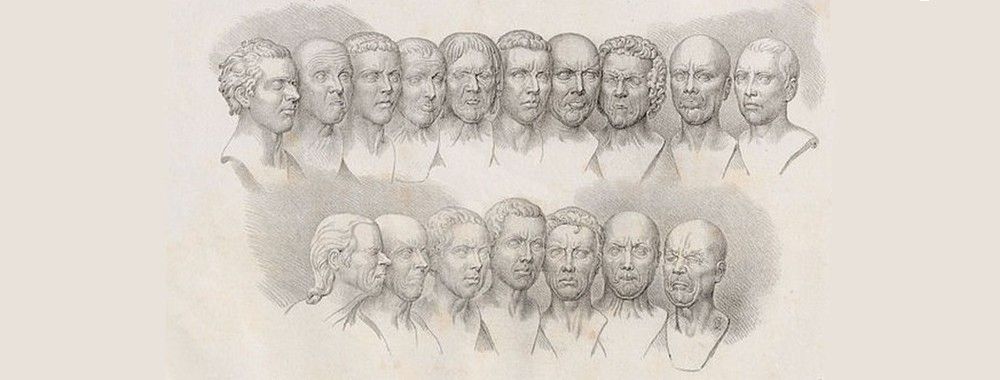...emotions, encompassing both positive and negative emotional states, have the potential to benefit us. And not only can emotions have an enduring and positive effect on our psychophysiology, but they provide us with the impetus to choose and pursue different goal paths. This is of particular importance when an event or situation results in the continual prevention of goal attainment. If we did not experience some negative emotion as a result, we may be more inclined to continue with the same line of attack, resulting in the loss of physical and cognitive resources essential for self-preservation.
An Overview of Emotions
The defining moments in our lives are typically associated with distinctive emotional states. When we gain the grades necessary to go to our favored school, college, or university, we experience elation, happiness, and perhaps a little trepidation about going somewhere new. In contrast, if we have failed to gain the grades, we might feel sad, shocked (depending on how you felt you had performed in the exams and coursework), and/or depressed. These emotional states become as much a part of the memory as the experience itself. If you were to cast your mind back to a particularly important point in your life, you would instantly remember how it made you feel, how it affected you physically, and how it affected your behavior. Even the act of recollecting the experience may induce a similar emotional experience, underlining quite how important emotions are to us and our experience of the world.
Defining Emotion
For most of us, Emotion is a word we use without ever really considering exactly what it means, and it is unlikely that you have sought a definition. This is primarily because emotion is about feeling – something that isn't easily encapsulated or captured with words, but it is something familiar to us all. Various definitions are available, but most are in agreement that emotion has three core qualities, according to renowned psychology researchers David Watson and Lee Anna Clark (1994) at the University of Iowa:
- what we refer to as emotion is essentially a psychophysiological response, whether to external stimuli or as a result of mental processes;
- a pattern of autonomic changes; and
- a distinct subjective feeling state.
Watson and Clark's definition also includes the presence of some expression, usually facial, but for many of the emotions we experience, especially when we are alone, there is little change in our appearance. While we may frequently experience emotion without some observable change in our appearance, some psychophysiological change(s) always occur(s).
Emotions: what are they good for? Absolutely nothing?
Many psychologists and theorists have suggested emotions have no obvious benefit. This notion is quite easy to appreciate when we feel scared, depressed, anxious, or any other negative emotion, especially when the emotion impedes our performance in a particular task or our day-to-day lives. Take, for example, a penalty taker in a football/soccer match, feeling almost physically sick with fear, his legs turning to jelly as he makes his way towards the ball. These feelings do not help the person perform better, so how can we possibly see these negative emotions as beneficial? In this case, the person is put in an artificially “dangerous” situation, a construct of our civilization, in which negative emotions are not helpful. But emotions are a product of evolution that we cannot easily overcome, because they developed as a response to situations that have to do with our very survival as a species. Let’s see why even negative emotions are helpful!
Assessing the benefits of emotion
The majority view is that emotions are important to us, in particular negative emotions, which are thought to perform various functions essential for maintaining physical and mental well-being. Let us consider anxiety; over a prolonged period of time, anxiety can be debilitating, but in the short term, it prepares us and sensitizes us to potential threats in our environment. This preparedness also ensures we are in a sufficiently high state of physical arousal to deal with the threat (i.e. fight) or remove ourselves from the threatening situation (i.e. flight). In their functional theory of emotion, researchers Keith Oatley and Philip Johnson-Laird (1987), at the Universities of Glasgow and Cambridge respectively, suggest emotions help us choose which goals to pursue, as they act as a barometer for determining the possibility of success when we take a particular approach to a problem.
For example, anger is the result of an unsuccessful action or one that has been obstructed, which might lead to the individual ceasing their activity and attempting an alternative approach to their problem. This has the benefit of conserving physical and cognitive resources for other attempts at solving a problem, rather than continuing to expend these precious resources by following an already unsuccessful goal path. Happiness, however, encourages the individual to continue down a particular goal path, as this emotion is likely experienced as a result of a successful approach. According to researchers Barbara L. Frederickson at the University of Michigan and Robert W. Levenson at the University of California, Berkeley (1988), positive emotions also have the capacity to lower physical arousal following some negative event.
Consider this simple fact – every bit of software that we use (such as a website) is nothing but a tool, a means to pursue a goal (e.g., to find and purchase a good pair of shoes, or to keep informed of the news of the world). It’s not difficult to understand why emotional responses to software can assist us to determine whether we are able to achieve our goals with it, or whether we should look for another bit of software (another website perhaps) that might be more suitable.
The Take Away
We can see that emotions, encompassing both positive and negative emotional states, have the potential to benefit us. And not only can emotions have an enduring and positive effect on our psychophysiology, but they provide us with the impetus to choose and pursue different goal paths. This is of particular importance when an event or situation results in the continual prevention of goal attainment. If we did not experience some negative emotion as a result, we may be more inclined to continue with the same line of attack, resulting in the loss of physical and cognitive resources which are essential for self-preservation.
References & Where to Learn More
Hero Image: Copyright Holder: Matthias Rudolph Toma (1792-1869), Messerschmidt’s “Character Heads” (1839, lithograph on paper), Österreichische Nationalbibliothek, Vienna. Copyright terms and license: Public Domain
Clark, L.E. and Watson, D. (1994). Distinguishing functional from dysfunctional affective responses. In Ekman, P. E. & Davidson, R. J. (eds.). The nature of emotion: Fundamental questions. Oxford University Press.
Oatley, K., & Johnson-Laird, P. N. (1987). Towards a cognitive theory of emotions. Cognition and emotion, 1(1), 29-50.
L. Fredrickson, B., & Levenson, R. W. (1998). Positive emotions speed recovery from the cardiovascular sequelae of negative emotions. Cognition & emotion, 12(2), 191-220.




